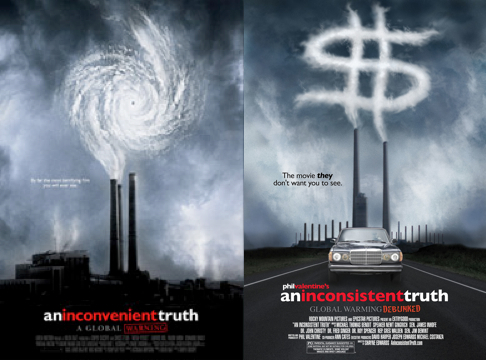October 14, 2012, by Warren Pearce
Science, politics and the new scepticism
While I blogged on MSP a couple of times while finishing up my thesis on local and regional climate policy, I have now started on the programme full time as a Research Fellow. My project has a working title of Science, politics and scepticism in the age of new media, and aims to “map the emergence, spread and contestation of ‘scepticism’ in the wake of recent controversies surrounding climate change and climate science”. With the project only a few days old, it seems apt to introduce some of its objectives on the blog, as well as outline some early thoughts on the issues involved.
Science, scepticism and the search for truth
Scepticism has been central to the development of scientific knowledge over the last 2000 years or so. Yet within climate science, understandings of scepticism have evolved since climate change emerged as a political and public issue in 1988, with the term becoming both increasingly prevalent and pitted against older meanings of scepticism which had previously prevailed in science and popular culture. The role of politics in this morphing is key with – in the US, at least – Al Gore playing a central role.
Gore’s documentary, An Inconvenient Truth, famously transferred evidence from climate science into an argument for action to reduce carbon dioxide emissions. The film’s director says Gore “strips his presentation of politics, laying out the facts for the audience to draw their own conclusions” However, the film’s success has seen Gore become a bête noire amongst conservatives, highlighting the difficulty of expunging politics from a controversial policy area (especially when one is a Democratic ex-Vice President!)
Earlier this year saw the release of the similarly titled An Inconsistent Truth, a somewhat belated response to Gore’s film. An excerpt from the film synopsis encapsulates some of the key arguments within this Leverhulme project:
“An Inconsistent Truth is one man’s odyssey to find the truth about man-made global warming. As the title suggests, this is an answer to Al Gore’s Oscar-winning documentary but it’s much more than a simple rebuttal. We not only talk with leading scientific experts on the ‘skeptic’ side but we explore the entire culture of the global warming movement; often in a humorous and satirical way.”
The film invokes the practice of scepticism within science, to counter the scientific arguments put forward by Gore. However, a glance at the cast list shows the importance of the political as well as the scientific in this endeavour, with prominent Republican figures Newt Gingrich and James Inhofe amongst the contributors. In addition, the film promises to “explore the culture of the global warming movement” [emphasis added]. Characterising Gore and his supporters as a ‘movement‘ seeks to distance them from science, instead identifying them as “people working to advance a shared political, social, or artistic objective” (OED, 2012). In its attempt to win the argument over global warming, An Inconsistent Truth seeks to reclaim scientific authority from Gore by relabelling him as politically motivated and speaking to a different expert community.
The publicity poster for An Inconsistent Truth goes further in discrediting the ‘warmists’, by redrawing the smoke plumes from the original’s poster as a gigantic dollar sign. This is a striking portrayal of one of climate scepticism’s more conspiratorial aspects – that decarbonisation advocates are financially motivated, such as through the rent-seeking of government subsidies. In particular, scientists have an interest in propagating their theories in order to maintain research funding. Proponents of action on climate change may complain that some of the film’s contributors have motivations rooted outside of climate science, maybe because of links to hydrocarbon-intensive industries or ideological objections to new regulation and/or taxation often proposed as climate policy measures.
Science, politics and the new scepticism
In this post, my intention is not to debate these motivations, merely to demonstrate how climate politics and science have intertwined to produce a new meaning of scepticism. This mini-case study also provides some context for three questions myself and Brigitte Nerlich will address in a new paper:
- How has the tradition of scepticism changed within the context of climate change debates?
- How do these changes relate to the friction between scientific knowledge and social and political responses?
- What do these changes say about the role of scientific evidence in public life?
The paper will outline the history of scepticism across science, with a focus on the public understanding of science and high profile cases such as MMR vaccinations, GM crops and climate change. With one eye on the empirical research that will follow, the review will stretch beyond traditional texts to consider blogs, social media and other online sources which were central to the ‘Climategate’ affair.
As well as helping to understand the boundaries and arguments at play within the climate change debate, the changing meaning of scepticism brings into question the ability of science to command public trust and support political legitimacy – concerns lying at the heart of the Making Science Public programme.
LINKS:
The Internet Movie Database has entries for both An Inconvenient Truth and An Inconsistent Truth.
My research notebook has evidence of the opprobrium visited on Gore by conservative sceptics: http://notesonscepticism.tumblr.com/tagged/AlGore
The US English definition of ‘movement’ can be found here: http://oxforddictionaries.com/definition/american_english/movement
For a UK perspective on the scientific and political aspects of the climate change debate, Brigitte Nerlich and Rusi Jaspal analyse Mail Online comment threads after Climategate.
No comments yet, fill out a comment to be the first


Leave a Reply